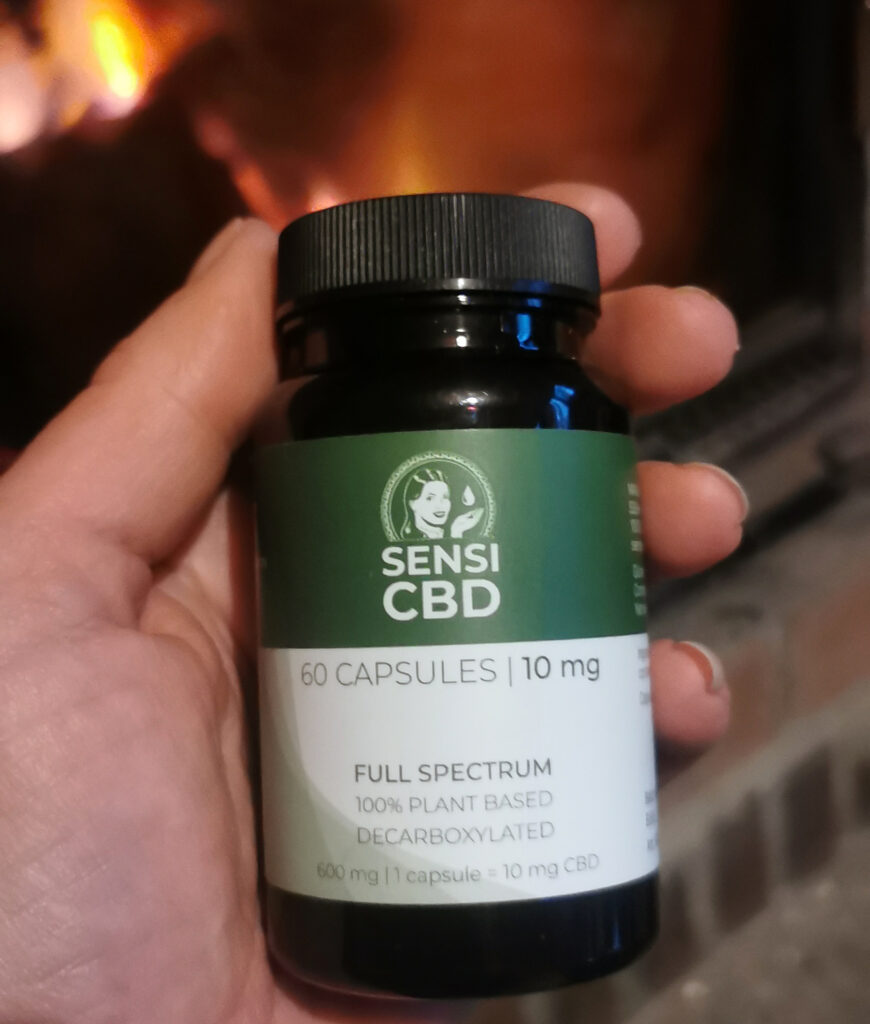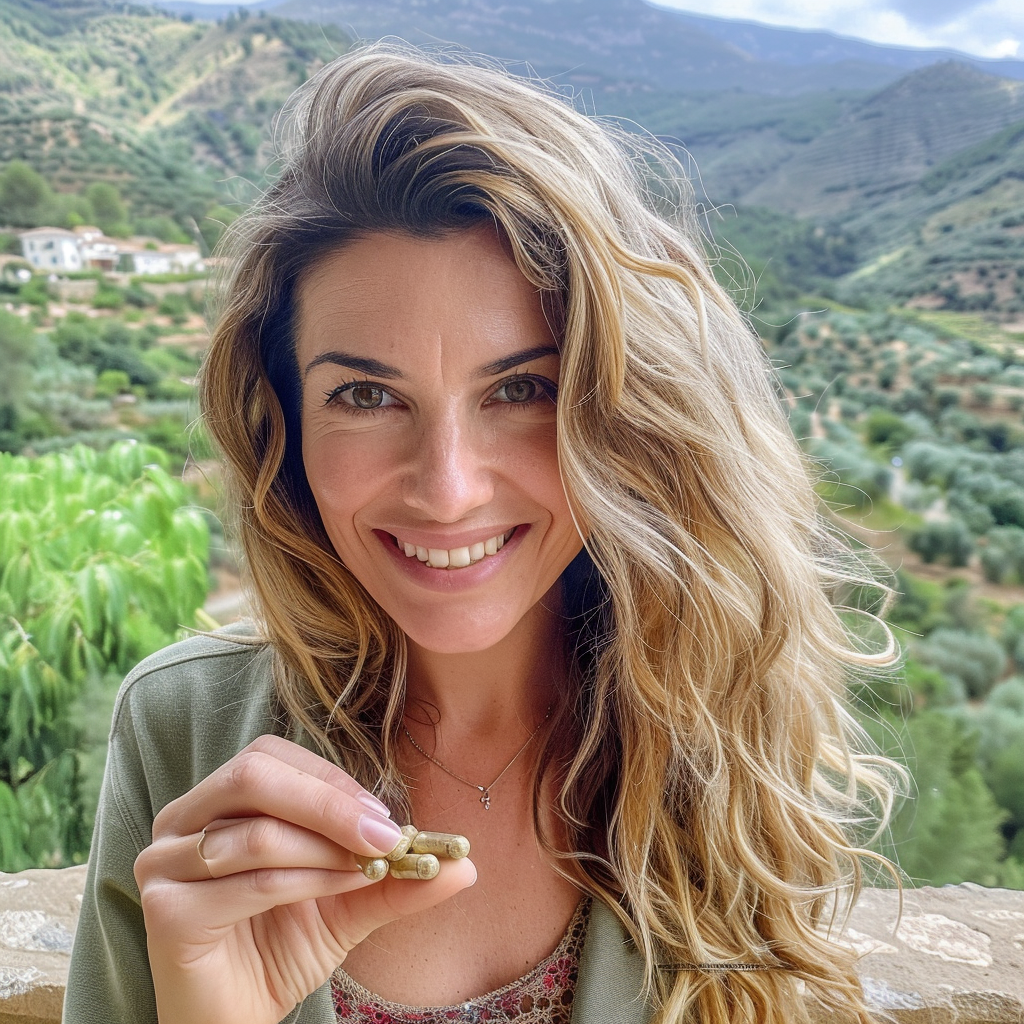ANYONE not living in a cave for the past few years will have noticed the rise of CBD (cannabidol) products in Spain and other countries, including the UK. But what are the rules surrounding these CBD products in Spain? Is it best to buy them locally, and support our Spanish hemp growers, or to have them delivered from, say, specialist companies in the Netherlands?
For those unfamiliar with its properties, CBD is a cannabinoid compound found in the cannabis plant. Unlike THC (tetrahydrocannabinol), it isn’t psychoactive and won’t get you high. So, no feelings of clinging to the sofa or running to the kitchen to eat cookies.
CBD has been widely praised for its potential health benefits such as pain relief, anti-inflammatory properties, and relaxation. It is found in many blends and topical ointments, including for burnt and irritated skin and aching joints, as well as in capsules and oil droppers.
With its reputation for relaxing people without causing impairment, some claim that CBD products are helpful for those with an Alcohol Use Disorder (AUD) who are trying to reduce the alcoholic beverages in their life. Just reach for the CBD after a stressful day, instead of that glass of wine…
The reported benefits occur because CBD interacts with the endocannabinoid system in the human body. This system is responsible for functions ranging from appetite to mood and sleep pattern, and to achieve mental and physical balance. CBD binds with the receptors and can reportedly influence them in positive ways.



CBD products are not classed as a food supplement in Spain
One thing, however, that British (and other) visitors to Spain might notice, is that there’s a bigger range of CBD products in their country in than in Spain, where the selection is clearly more limited.
For example, in Britain, we have CBD gummies, chocolates and CBD-infused drinks with names such as Trip and Goodrays. These are sold in supermarkets and health food shops including Holland and Barrett, as well as the Boots concessions in airport departure halls.
Why don’t we have all these CBD products in Spain, you may ask? That’s because Spain considers CBD for topical usage (i.e. rub it on your skin) and not as a food supplement. There’s no specific legislation for its ingestion. That’s because it isn’t listed with the Medicines Agency (AEMPS) or the Food Safety Agency (AESAN). However, importing CBD that has been legally extracted in the EU (such as the Trip CBD drinks you had on the plane) will not land you anything more than a relaxed state.
Ingestible CBD (that you put in your mouth) is classed as a novel food by the EU which has jurisdiction in Spain. This allows for ingestible CBD to be bought in Spain, even if it was made elsewhere.
Novel food regulation is controlled by the European Food Safety Authority (EFSA). Products must be registered with the EFSA to be cleared for sale. For example, a product made in a EU country where oral CBD consumption is legal, such as Switzerland or Germany, may join the EFSA register. So, you can then ingest it in Spain. As with many rules and regulations, this is confusing!
Spain’s long history of hemp and CBD
Regardless of any legislative reluctance to eat the stuff, hemp cultivation dates back centuries in Spain and is based on a combination of cultural, and agricultural, factors.
Historically, it was grown to provide fibre for textiles, rope, and paper, as well as for its seeds and oil. Spain has a favourable climate for hemp crops, particularly in Andalucia, and the area south of Granada, where entrepreneurs have seen the opportunity to create ‘cáñamo’ plantations. Be warned – this involves ‘cinta roja’ (red tape) and is a lot of work.
Notably, strict regulations apply to the THC content of hemp products on your legal plantation. This must always be below 0.2%. If your CBD crop has too much THC and is tested as such, it will cause a police raid.
However, this hasn’t deterred an increasing number of hemp farmers. Southern Spain is attracting interest from domestic and international investors and there’s ongoing research into developing new strains with higher CBD content, as well as improving infrastructure and extraction facilities.
According to Statistica, the revenue generated by Spain’s cannabis market is projected to reach US$988.30m (913.65m euros) in 2024, with the revenue per person forecasted at around 19.24e. It is then expected to show an annual growth rate of 14.37%, resulting in a market volume of US$1,691.00m (1,563.28m euros) by 2028. It is possible, during this time, that regulations will change, and products may have an opportunity to diversify.

Confusing CBD rules in Europe
Martijn Smid is a sales manager at Hempflax, a long-standing hemp and CBD company from the Netherlands, located near the border with Germany. Hempflax sells hemp for fibre insulation, clothing, animal bedding, office furniture, car parts, and building blocks. Its production process is from the seed to the final product – the whole chain.
Martijn tells us: “It’s difficult to predict the market as the legislation differs between various countries. For example, you can sell CBD as a food supplement in the Netherlands and UK, but Spain only allows cosmetic products. The UK has its own rules since Brexit and the THC level of 1mg per bottle or jar is very low. The Netherlands has <0.05% and Spain must be 0.2%,
Martijn explains a few complexities that exist. “Hempflax can only harvest its fully grown plant for wood and fibres in the Netherlands, not CBD. In Germany and around our production site in Romania, we are allowed to grow and harvest hemp for CBD. However, in Germany, you’re not allowed to sell the finished product in stores, although you can harvest it! So, it must be returned to the Netherlands for production of the finished product finally to sell in stores!”
He adds that shipping can be difficult because what applies in one country might not in another. This is why consumers are advised to use reliable, specialist companies that take a professional approach to regulations and customer care.
Buying a safe CBD product for your personal needs
Says Martijn: “Quality is very important and what’s stated on the label should be in the bottle. We use testing by an independent lab in Germany to ensure the values are as promised for CBD and THC content.
He advises: “Consumers should look for an established company, such as our sister, Sensi Seeds, which has more than 30 years in the business, and the vendor should state its test results.”
“Normally a new consumer should start with an average dose of between 10-20mg per capsule or an oil with a 2.75-5% option. It is easier to take the same amount every time with capsules. Follow the label carefully, be aware of any warnings, and consult a doctor if you use medications.”
He adds that oil is the top seller – but you mustn’t lose count of the drops. Of the product range, 5-10% oil and 20mg capsules are the most popular.
And, to get the best personal result from your chosen product? He says: “It depends on individual reaction. Start with lower strengths and work up. If you’re happy with the results, stick with it. If not, try a different strength or product. As a rule of thumb, follow the label for best results.”
He adds: “If you buy a high-quality product from a reputable vendor, it will be safe. You must store it correctly after purchase. Don’t put in sunlight, keep it cool and dry with the lid in place. Not in a hot car (very important during summer in Spain).”
Should I buy my CBD in Spain?
With many fledgling companies offering homemade CBD products in Spain, the industry is seeing a boom period, and it’s not hard to find CBD tinctures in stores and online. However, some products are not lab tested and might diverge from what it says on the bottle.
Ordering a tried-and-tested product online from an established company, like Sensi, guarantees that it is 100% safe and effective, and will not be over the stated 0.2% TCH level.

